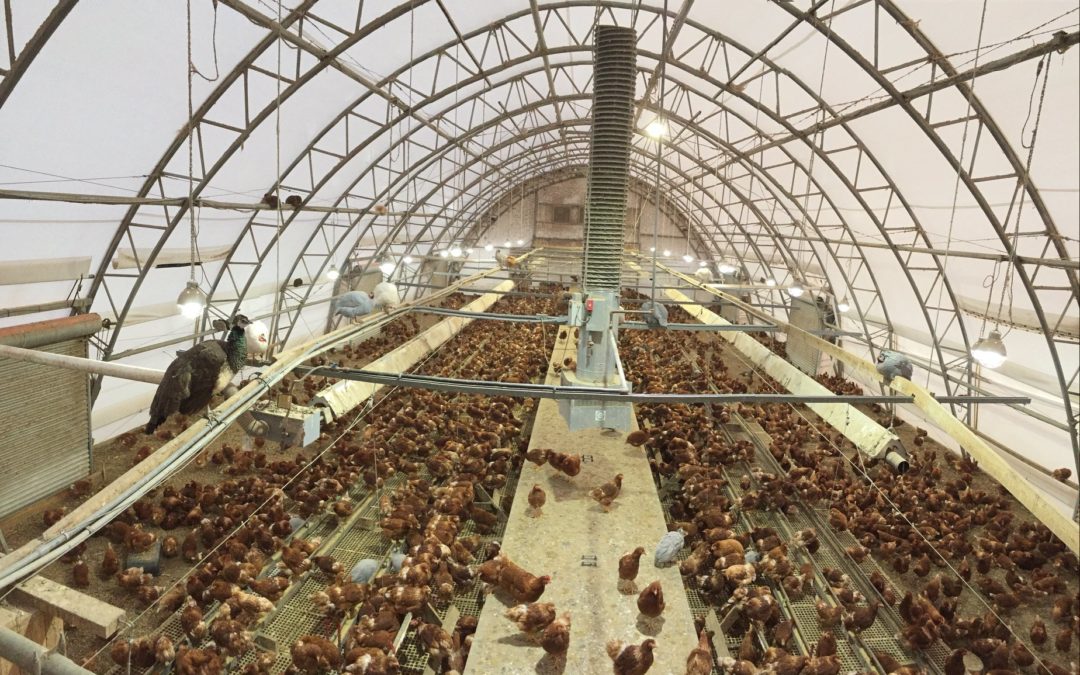I live very close to a working farm (Julie’s Happy Hens) that sells eggs – they have up to 3,000 birds – as well as sheep’s milk cheese. The owners, Matt and Julie, occasionally post on Facebook. This is part of a long discussion they just put on their site. It’s a sobering look at why Americans might be seeing food-supply issues this summer:
I have a newstream I subscribe to which pummels me with poultry, feed, and petfood related topics and these days they are mostly polluted with what production plants have been shut down due to the virus. Curiously it is not that workers are calling out sick, but rather that the plants themselves have become vectors for infection and state or federal offices have requested that the plants shut.
We talk to other farmers, veggie, dairy, meat, eggs, and have found that those who are at the back end of the value stream are getting hurt, not because people don’t want their products, but because the pandemic is crippling the distribution and packaging parts of the supply chain.
We are reliving the Russian Revolution – they never had a food production problem, it is just that there was no one left to move, sort, store, and serve the food. Their issue was, well, there was a revolution going on…had to fight the battles and free the proletariat.
Our issue is that all the plants and distribution centers are becoming transmission centers for the virus, people are getting sick and others are panicking, so the waystations from farmer to buyer are shutting down. Plus, if you were producing commodity products, be it produce or meat or dairy (or eggs), your distribution system has been so specialized to service the food service industry rather than consumers that they can not retool in time to deal with perishable product. Hence, it is easier/cheaper to “depopulate” (the new euphemism for euthanize) their operations because if they didn’t, there would be no place for the animals to go to in order to be put into the human food supply – kinda like oil prices dropping below zero cause there is no place to put the oil.
On the other hand, farms at the front end of the value stream like us, farm-to-table places, are doing the business they always dreamed of. We can’t make enough product so we call our farmer friends, mostly the ones doing commodity products (for instance, we have worked with Joyberry Farms, a mushroom grower nearby who bloomed a bunch of Oyster mushrooms for the local restaurants who no longer needed them, so we have gone through 25-30lbs of the most wonderful shrooms you can imagine, and we are asking for more!).
Other farms with even more passthrough than we are coming to us for eggs and sometimes lamb and beef. We are now sending eggs to the seacoasts in both NH and MA! On the more heartbreaking side though, we got a call from a food bank in Ossipee looking for eggs, not sure how they found us (google?), but we had to say no because we literally had nothing in the cupboard. It makes us feel bad that folks are so desperate they would come this far to pick up for their people, but then food pantries are getting really hard hit in all of this.
One question on the tips of our tongue is how many of our new customers will stay with us once some level of normalcy returns. Will people’s eating habits stay changed, or will they revert to fast food and commodity ingredients? I honestly hope that communities realize the importance and value of local farmers to their food security and help preserve them and therefore help preserve themselves.


 Return to the Concord Monitor
Return to the Concord Monitor
This is such a frustrating piece to read. I feel so much empathy for what Matt and Julie are going through. They understand what we, the public go through when making purchases. We try to be good consumers but our choices are being reduced. We buy their eggs through our general store, return egg cartons and otherwise try to support local business. But we are so limited. What real difference can we make when consumer laws are being written with consequences that almost no one can understand except that the producers of our food take a hit every time. We live in interesting times but that is no excuse for hurting people and small businesses. There is very little accountability from those in charge.
End of Rant!